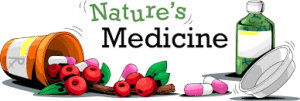You Know What? “Natural” Isn’t Always What You Think

The difference between natural and safe sounds like nitpicking at first, doesn’t it? Like splitting hairs. But think about it: how many times have you grabbed a product simply because the word “natural” was stamped on the label? I bet more than once.
And yet, arsenic is natural. Poison ivy is natural. Even hemlock grows wild in fields—and it’s been used for centuries as a poison. Safe? Not even close.
So when people casually ask, is natural always safe, it’s worth pausing. Because nature gives us turmeric and ginger, but it also gives us deadly mushrooms and toxic plants. The difference between natural and safe isn’t abstract. It’s real, and it matters every single time you swallow a supplement or brew a cup of herbal tea.
Nature: Beautiful, but Sometimes Brutal

You know what’s fascinating? Many of our most trusted medicines started in nature. Aspirin came from willow bark. Penicillin from mold. Digitalis, a heart medication, from the foxglove plant. Nature has always been the lab.
But here’s the twist: safety comes from testing, measuring, and regulating. Foxglove in your backyard? Dangerous. Digitalis prescribed by a doctor? Lifesaving. That’s the whole difference between natural and safe—context.
Ask yourself: are natural products safe just because they’re found in the wild? Not necessarily. Mushrooms on your pizza? Delicious. Mushrooms in the wrong forest? Well… you’ll wish you hadn’t tried them.
Every year, emergency rooms see mushroom poisoning cases, often from foragers who thought they’d found a safe variety. If you’re interested in avoiding similar mistakes, guides at www.evaluatemymeds.com cover medication safety and supplement risks in plain language.
The Allure of “Natural” on a Label

Marketers know exactly what they’re doing. Slap a green leaf or an earthy logo on a bottle, and suddenly it feels safe. It feels wholesome. “All-natural” is basically a comfort blanket in bold font.
But comfort doesn’t equal truth. Cigarettes are made from tobacco leaves. Natural. Are they safe? We don’t even need to answer that one.
Even common kitchen staples can turn risky. Nutmeg in small amounts makes your holiday cookies sing. Too much? Hallucinations, rapid heartbeat, and a trip to the hospital. Green tea is a wellness darling, but concentrated extracts have sent people to the ER with liver damage. These are the kinds of natural health risks nobody mentions on the shiny label.
So the smarter question isn’t “is it natural?”—it’s are natural products safe for me, in my situation? For a deeper look, the NCCIH has excellent consumer guides on herbs and supplements.
Supplements: Candy Shop or Landmine?

Walk into a health store or scroll Amazon and it feels like a candy shop. Shelves stacked with promises: better sleep, more focus, stronger immunity. Who doesn’t want that? But here’s where the safety of natural supplements gets murky. Unlike prescription drugs, most supplements don’t have to pass through the FDA’s rigorous gates before they hit the shelves.
That means mislabeling happens. Contamination happens. Over-promising definitely happens. And people are left asking: are natural products safe, or am I gambling here?
A Few Uncomfortable Stories
-
Kava: Marketed as calming, but linked to liver failure.
-
Ephedra: A weight-loss “miracle,” banned after causing heart attacks.
-
Yohimbe: Sold for performance, but known to spike blood pressure.
It’s like nature’s version of Russian roulette—sometimes healing, sometimes harmful. That’s why paying attention to natural health risks isn’t paranoia; it’s just smart.
A Seasonal Angle
Think about cold and flu season. Echinacea, elderberry, and vitamin C fly off the shelves. Do they work? Sometimes. Are they safe? Often, yes—but not always. Elderberry can cause nausea or interact with medications, while too much vitamin C can wreak havoc on your stomach.
Want an example? Our blog on supplements that require blood tests at www.evaluatemymeds.com shows how even “immune boosters” may need monitoring.
When Herbs and Prescriptions Collide

Here’s where things really get tricky: natural supplements and drug interactions. A surprising number of people don’t even tell their doctors about the herbs they’re taking. Why? Because they don’t think of them as medicine. But your liver and kidneys don’t care about labels—they care about chemical reactions.
-
St. John’s Wort can tank the effectiveness of antidepressants and even birth control.
-
Ginkgo biloba can thin your blood, which is dangerous if you’re already on warfarin.
-
Garlic pills—yep, garlic—can increase bleeding risk before surgery.
-
Kava can sedate you even more if you’re on anxiety meds or having a drink.
-
Licorice root can spike blood pressure if you’re on certain heart medications.
So, what do you do? You check. An herb drug interaction checker may not sound exciting, but it’s like having a seatbelt for your health. You type in your meds and supplements, and it spits out whether they clash. That simple tool can answer the big question: are natural products safe alongside my prescriptions?
For more examples, the Mayo Clinic herb and supplement database is also an excellent resource.
Natural vs Safe Remedies: A Tale of Two Herbs

Let’s play compare and contrast.
-
Turmeric: Bright yellow, packed with anti-inflammatory power, studied in labs, safe for most people in reasonable doses.
-
Comfrey: Equally natural, used for wound healing for centuries—but toxic to the liver if swallowed.
Both are natural. Only one is safe for regular use. That’s the essence of natural vs safe remedies.
And chamomile? Lovely in tea, soothing for many. But if you’re allergic to ragweed, it can trigger serious reactions. Again, the difference between natural and safe shows up in personal context, not just in nature’s catalog.
So how do you tell the difference? Honestly, if a remedy claims to cure everything, that’s your red flag. If there’s no dosage guidance? Another flag. If you can’t find a single credible study? Step back.
On www.evaluatemymeds.com, we’ve put together simplified medication safety guides to help you filter through myths and facts before you trust a product.
How Do You Actually Check Safety Without Going Crazy?

Nobody wants to spend hours reading clinical trials. You don’t have to. Here’s how to keep it simple:
-
Talk to your doctor. Bring a list of supplements to every appointment. They’ll catch the natural supplements and drug interactions you didn’t see coming.
-
Use a checker. An herb drug interaction checker takes seconds and could prevent months of side effects.
-
Stick to credible sources. Think Mayo Clinic, MedlinePlus, or the FDA’s dietary supplement section. Not TikTok trends promising miracle cures.
-
Ask yourself: are natural products safe for me right now? Because health changes. What was fine at 25 might not be fine at 55.
And don’t forget—our own resource hub at www.evaluatemymeds.com breaks down medical reports into simple language, making it easier to spot whether a supplement belongs in your daily routine.
Where Do We Go From Here?
So do we throw away every supplement bottle? Not at all. That would be like swearing off food because some is junk. The real trick is balance. Respect the herbs. Respect the safety of natural supplements. And never assume is natural always safe is the right question—it’s not.
The smarter approach is asking: what are the possible natural health risks, and how can I avoid them? And the answer usually starts with awareness, curiosity, and yes—tools like an herb drug interaction checker.
It’s about being cautious without being paranoid. Open without being gullible.
Closing Thoughts: Respect Nature, Don’t Worship It

Here’s the bottom line. Nature is powerful. Sometimes that power heals, sometimes it harms. Pretending otherwise doesn’t make you safer—it just makes you unprepared.
The difference between natural and safe is not just academic. It’s personal. It’s about your body, your prescriptions, your choices. And it’s about being willing to ask the tough questions: are natural products safe for me, today, in my actual life?
When we treat nature with respect—neither blind faith nor outright suspicion—we find that sweet spot where remedies are both natural and safe. And that’s where the real healing lives.
❓ Frequently Asked Questions About Natural vs Safe:
1. Is natural always safe?
Not necessarily. While many natural remedies are beneficial, others can be harmful or even toxic. Hemlock, for example, is natural but deadly. The key is recognizing that “natural” doesn’t automatically mean “safe.” Always evaluate context, dosage, and potential risks before use.
2. Are natural products safe for everyone?
No. Are natural products safe depends on your personal health, medications, and even allergies. For example, chamomile is soothing for most, but it can cause reactions in people allergic to ragweed. Checking with your doctor or using a tool like the herb drug interaction checker helps ensure safety.
3. What are the biggest natural health risks?
The biggest natural health risks often come from:
-
High doses of supplements (e.g., concentrated green tea extract damaging the liver).
-
Herbs interacting with prescriptions (e.g., St. John’s Wort reducing effectiveness of antidepressants).
-
Contamination or mislabeling in poorly regulated supplements.
4. How can I check the safety of natural supplements?
Start by consulting a healthcare provider. Then, use reliable resources like the herb drug interaction checker at www.evaluatemymeds.com, or trusted sites such as NIH Office of Dietary Supplements or Mayo Clinic.
5. What’s the difference between natural vs safe remedies?
Natural vs safe remedies highlights that something can be natural but not safe, or safe but not natural. For instance, turmeric is both natural and generally safe, while comfrey is natural but unsafe for internal use. Safe remedies are defined by research, testing, and responsible use—not by whether they grow in nature.
6. Should I stop taking supplements altogether?
Not at all. Supplements can be useful when used wisely. The point isn’t to avoid them, but to approach them carefully—just like prescription medicine. Ask your doctor, read credible sources, and check your supplements through www.evaluatemymeds.com to ensure they’re both effective and safe for you.
🌐 External Link Suggestions:
-
NIH Office of Dietary Supplements – reliable research on vitamins and herbs.
-
National Center for Complementary and Integrative Health (NCCIH) – government-backed resource on herbal medicine and interactions.
-
FDA Dietary Supplements – official regulations, warnings, recalls.
-
Mayo Clinic – Herb and Supplement Guide – plain-language breakdown of safety and interactions.
-
MedlinePlus Herbs and Supplements – detailed health library of supplements and their risks.
🔗 Internal Link Suggestions:
-
Herb and Drug Interaction Checker → point to:
https://www.evaluatemymeds.com/herb-drug-interaction-checker/ -
Supplements That Require Blood Tests → point to your post:
https://www.evaluatemymeds.com/supplements-that-require-blood-tests/








